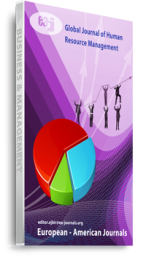HR policies provide an organization with a mechanism to manage risk by staying up to date with current trends in employment standards and legislation. The policies must be framed in a manner that the companies vision & the human resource helping the company to achieve it or work towards it are at all levels benefited and at the same time not deviated from their main objective. Each company has a different set of circumstances, and so develops an individual set of human resource policies.Over the years of my own experience in corporate sector, it was noticed that organization can reach certain level without policies and procedures but as it grows big it requires well laid down structure, policies and procedures for its functioning or it falls down. It is a general belief that those organizations which have well laid HRM Practices can better meet the competitive environment than those organizations having weak HRM practices. In this study, focus is on studying and analyzing the role of HRM practices on the growth and development of the organization. Its main purpose is identify the prevailing HRM practices and then analyse the effectiveness of these practices in Textile industries in Madhya pradesh. For reaching our goal we have collected information regarding HRM practise in 60 Textile industries considering variables namely Manpower planning, Staffing practices, Training and career development, Performance Appraisal, compensation and Incentive, Unionization, team work, Employee participation and Working conditions which form exclusive part in measuring the prevailing HRM practices in MadhyaPradesh,India. After this we were able to analyse the effectiveness of these HRM variables in Textile industries
Keywords: Effectiveness of HRM practice, HRM practices, Human Resource Management, Textile Industries

